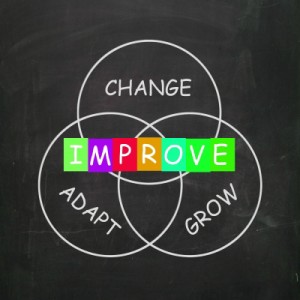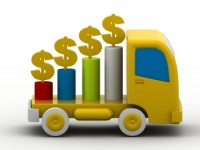I drive a 1996 Dodge Dakota pickup truck and have no desire to buy something newer or fancier. When I go to the grocery, my mind no longer even registers the price of rib-eye steak as I scan the meat case for chuck steak, our preferred selection. When I want to shop for books, I automatically head for the used book store. I don’t think about any of this. It’s just the way I am wired now. What’s with that? When and how did I get into this state of frugalistic adaptation?
Frugalistic What??
Thanks to MrMoneyMustache, I have learned about the concept of hedonistic adaptation. Basically, that’s the normal human process whereby one ends up taking for granted any up-scaling of material consumption a fairly short time after the up-scaling. At which point, the initial emotional reward of the up-scaling has dissipated and disappeared – leaving a void calling to be filled by another up-scaling. A consumer economy’s dream (or nightmare).
I am in the opposite condition. I am in a state of frugalistic adaptation. And I used to wonder whether that was the right state of mind for me to be in.
You see, I am not being frugal by necessity. If I chose to, I could spend four times what I do on my basic living expenses and still not have to borrow a dime to do it. I am not being frugal because I have to be in order “to make ends meet.” At this point in my life, I have become frugal by nature (if that is possible). I have adapted to being frugal without experiencing any feelings of sacrifice or deprivation from doing so.
And that is what I mean by frugalistic adaptation. I am satisfied driving my 1996 Dodge Dakota – and every time I see a bigger, more costly truck my satisfaction is reinforced. I totally enjoy my medium rare chuck steaks – and knowing that rib-eye would have cost me at least twice as much enhances my enjoyment. And if I notice the $22.50 original price mark on a book’s slipcover as I grab it off my library shelves, it just tickles the hell out of me to know that I got that book for two bucks at a public library clearance sale.
Paradoxically, being adapted to frugality also frees me to spend more when doing so will actually make a difference to me. Like when I spend the extra $20 a bottle to drink Chivas Regal instead of a Brand X scotch. Because my frugality in most other situations provides me both financial and psychological cover to spend that extra twenty bucks. It may sound strange, but I feel good buying and drinking that Chivas Regal partly because I am aware that my overall frugality makes the splurge not just possible, but guiltlessly easy and financially inconsequential. And without any negative aftertaste.
That Frugalistic Feeling
You see what this means? At least for me, being frugal feels good. And, instead of dissipating, that feeling gets rekindled and re-energized every time I wear, drive, eat or otherwise use a product of my frugality. This makes frugality, at least for me, self-reinforcing. The “high” I get from every frugal buy makes me want to be frugal on my next buy. And that is really, really huge.
Think now of what that could mean for you. If frugal spending could make you feel happy – and keep you feeling that way – then you would have more money for other things. More money to improve your lifestyle (say by eating steak twice a week instead of once). Or more money to invest so that you can retire sooner or have more passive income to spend when you do retire – or both. And all the while you would be feeling good from being frugal. Wouldn’t that be the cat’s meow?!
Frugalistic adaptation is truly a gift from the financial gods. A gift that you could start making your own today. It won’t happen instantly. But it will happen.
# # #
image courtesy of Stuart Miles at FreeDigitalPhotos.net








I love this post! That’s exactly how I feel!
I’ve been undergoing a ‘frugalistic adaptation’ for a long time, the adaptation is not complete (yet) but it’s constantly moving in the right direction.
Like I said, it is self-reinforcing. So rest assured, you’ll be completely adapted sooner or later.
This is pretty much how we operate too. We call it our “frugal autopilot” and it’s essentially what you described–we go through life frugal, happy, and with very little second guessing on where to spend/what to buy. It’s a pretty nice way to live
It most certainly is.
Totally understand although I am mainly doing it to count the pennies. On the other hand/ I get to travel overseas for three or more months a year and can get that reward feeling as I explore some ancient site or eat at some some small cafe on the other side of the world.
Frugalistic adaptation is something that just naturally happened to me. But my take on frugality is that it is a TACTIC to improve financial management and reach financial goals. It is not, to me at least, a religion.